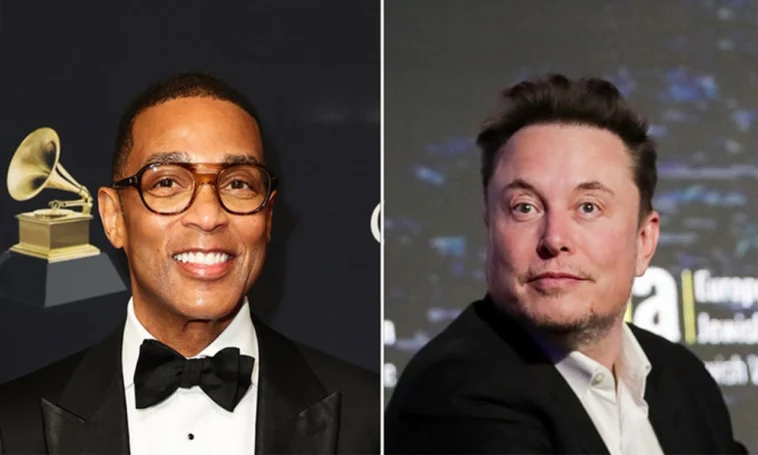Musk rebuffs Don Lemon on X hate speech, asserting, “I don’t have to entertain reporter questions”.The recent altercation between Elon Musk and Don Lemon has ignited a debate surrounding free speech, responsibility, and the dynamics of media partnerships.
At the heart of the issue lies Musk’s response to Lemon’s probing questions regarding hate speech on X, Musk’s social media platform, during an interview. Musk’s refusal to engage with Lemon’s inquiries underscores a broader tension between platform owners’ autonomy and societal expectations of accountability.
In the interview, Lemon, a former CNN host, confronted Musk about his role in monitoring hate speech on X, particularly about sensitive topics like the “great replacement theory” and its implications for Jewish people. Musk’s dismissive stance, asserting that he didn’t have to answer to reporters and that Lemon’s only leverage was being on the X platform, reflects his belief in his right to control the narrative surrounding his platforms. However, it also raises questions about the responsibilities of tech leaders in addressing harmful content and fostering inclusive online environments.
“I don‘t have to answer questions from reporters. Don, the only reason I‘m doing this interview is because you‘re on the X platform and you asked for it. Otherwise, I would not do this interview,” he responded.
Musk’s subsequent decision to cancel Lemon’s partnership with X adds another layer to the controversy. Lemon had entered into the partnership with the expectation of leveraging Musk’s platform to amplify diverse voices and engage with a broader audience.
Musk’s assertion that Lemon’s approach mirrored that of traditional media, specifically citing CNN, and lacked authenticity further underscores the clash between Musk’s vision for X and Lemon’s expectations of collaboration.
The fallout from this incident highlights the complexities of navigating partnerships between media personalities and tech moguls. Lemon’s statement on social media reflects his disappointment and disillusionment with Musk’s management team, emphasizing his belief that Musk’s platform represented an opportunity for new and diverse voices to flourish. The abrupt cancellation of Lemon’s partnership raises concerns about transparency, accountability, and the extent to which promises made by tech leaders are upheld.
Moreover, Musk’s characterization of Lemon’s approach as reminiscent of CNN’s style brings into focus the evolving landscape of media consumption and dissemination. Traditional media outlets like CNN have faced criticism for their perceived biases and lack of authenticity, prompting a shift towards alternative platforms like X. Musk’s attempt to differentiate X from traditional media underscores his vision for a more decentralized and authentic digital space.
However, Musk’s unilateral decision to sever ties with Lemon underscores the power dynamics inherent in media partnerships with tech giants. While Musk champions free speech and autonomy, his actions raise questions about the extent to which platform owners should be held accountable for the content shared on their platforms.
As social media platforms increasingly shape public discourse and influence societal norms, the responsibility of tech leaders to address harmful content becomes ever more pressing.
The clash between Elon Musk and Don Lemon underscores broader debates surrounding free speech, accountability, and the role of tech platforms in shaping public discourse. Musk’s refusal to engage with Lemon’s questions and subsequent cancellation of their partnership highlights the complexities of navigating media partnerships in the digital age. As society grapples with the implications of online speech and platform governance, tech leaders must prioritize transparency, inclusivity, and responsible content moderation to foster a healthier digital ecosystem.






One Comment
Leave a ReplyOne Ping
Pingback:Don Lemon keeps possibility open for CNN comeback: 'Never say never' - Hard Knock News
Join the Community and Be a Part of the Conversation
You must be logged in or registered to post a comment.